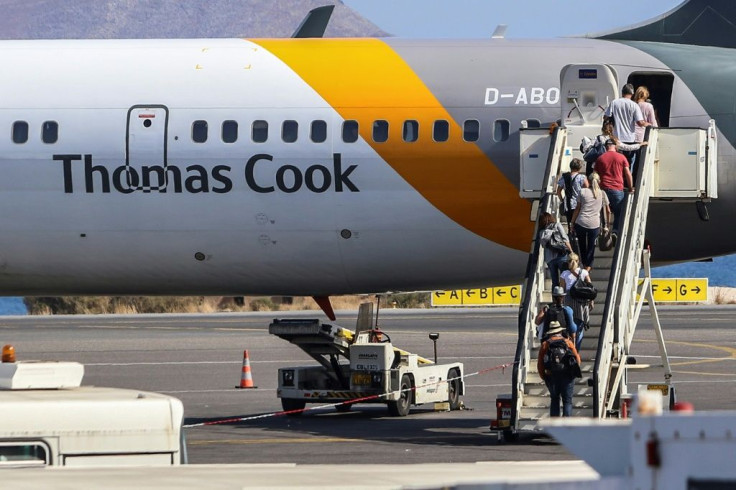Fall Of Thomas Cook Creates 'Tsunami' Of Losses For Tourist Resorts

The Mediterranean's leading tourist hotspots were bracing Tuesday for a "tsunami" of losses, which could amount to hundreds of millions of euros, following the devastating collapse of British tour operator Thomas Cook.
Beyond the urgent need to repatriate hundreds of thousands of tourists, industry professionals were agonising over the huge sum in unpaid bills.
The British package holiday giant had established a practice of paying a hotel's bills only 90 days after the departure of the guest, raising the question of the huge sums racked up over the busy summer period, several hotel sources said.
In Spain, where the company operated 55 hotels -- the highest number in any country -- the debt could reach as high as 200 million euros ($220 million), the Exceltur tourist association said.
And Italy's Confindustria Alberghi, one of the organisations representing the hotel industry, said the collapse of Thomas Cook could have a "very heavy" impact on the tourism sector.
Fellow industry body Federalberghi, which represents the sector, said many businesses would suffer "serious consequences".
"Within just a few hours, we have been contacted by many hotels telling us that the British tour operator owes them tens of thousands of euros, and sometimes hundreds of thousands," said its president Bernabo Bocca.
In Tunisia, the hotel federation said the collapse of Thomas Cook had left it with "65 to 70 million euros" in unpaid bills.
Even in Bulgaria, where the operator brought up to 400,000 visitors every year, hoteliers at Sunny Beach, the biggest resort on the Black Sea, said they were expecting to see "bankruptcies" and losses amounting to 36 million euros.
Legal action looms
Faced with huge financial losses, which several industry figures referred to as a "tsunami", Italy's Federalberghi said it had made contact with counterparts across Europe to coordinate legal action.
In Spain, Thomas Cook was the second biggest tour operator, bringing in 7.3 million tourists in 2018 -- around nine percent of the total visitors, according to an AFP calculation based on figures from national airport operator AENA.
In the Canary Islands, one in four holidaymakers were flown in by the package holiday specialist, the local hotel federation said.
And in Greece, where tourism accounts for 27 percent of GDP, Thomas Cook brought in 8.5 percent of the overall visitors last year, Greek press reports said, while in Tunisia, five percent of tourists came via the firm.
Most industry experts were extremely concerned about the fallout, with Crete facing a loss of up 100,000 reservations between now and November.
"The collapse of Thomas Cook is having a domino effect on suppliers, tourist buses, car hire companies, etc," said Michalis Vlatakis, who heads Crete's tourist agencies association.
"We need time to have a clearer picture of the damage that has been caused."
Individual businesses also had their own concerns.
"We'll have trouble next year.. especially (if we lose) customers that are German, Swedish and British because that's the wealthiest customers that we have," said Althea Scaramucci, who runs a juice bar in Majorca's capital Palma.
Carrier shortage in Canaries
In many countries, hoteliers have already turned to their respective governments for help, with Turkey -- where Thomas Cook accounts for some three percent of tourists -- mooting a package of support of up to 50 million euros.
In Greece and Spain, hotel industry representatives were on Tuesday holding urgent meetings with government representatives.
The impact on Spain's Canary islands could be even more devastating than elsewhere as the resort is very popular as a winter destination among tourists from northern Europe.
Efforts are now under way to convince Madrid to pressure RyanAir to keep these bases open, to ensure the accessibility of the resort in the longer term.
In Morocco, where Thomas Cook accounted for some 100,000 holidaymakers out of an overall total of 12 million, the outlook appeared less severe.
"The impact will be manageable," Lamia Boutaleb, the secretary of state for tourism, told AFP.
burs-emi-hmw/mg/boc
© Copyright AFP 2024. All rights reserved.





















